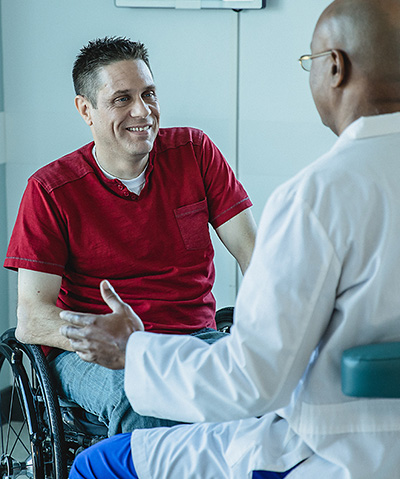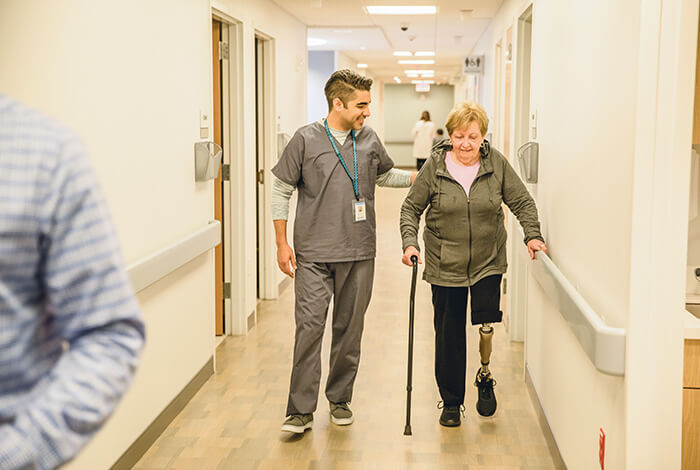As the leader in government-sponsored healthcare programs, Centene is an established voice on national health policy. With more than 35 years of providing access to the highest quality of healthcare, we are able to connect diverse viewpoints within the company with data-driven analysis to deliver informed policy positions that benefit our members as well as our internal and external stakeholders.
Likewise, we are a company that is continuously reinventing how our members get — and stay — healthy. Through innovative ideas and programs, combined with cutting-edge technology, we continue to enhance access and quality of care while adhering to our core beliefs and guiding principles.

Removing Barriers to Care
In line with Centene’s history of and steadfast commitment to removing barriers to healthcare, our Provider Accessibility Initiative (PAI) was launched in 2017. Designed in collaboration with Centene’s National Disability Advisory Council and the National Council on Independent Living, PAI assists those living with disabilities in accessing healthcare providers and services. The program’s ultimate aim is to transition healthcare delivery into a fully accessible system for people with disabilities. The program received the 2019 Health Equity Award by the Centers for Medicare & Medicaid Services.
Additionally, Centene has launched various programs and initiatives that address the spectrum of social determinants of health (SDOH): the environmental, economic, and social barriers that often make it more difficult to be healthy. Centene understands that health is, in part, driven by the conditions in which we are born, grow, live, work, and age. Our efforts to address the social determinants of health include interventions that improve outcomes for people facing barriers and limited resources, such as quality food, housing, transportation, and employment.
Accessible Care
Supported by new technology, Centene is consistently increasing the ways healthcare can be delivered. Telehealth, also known as virtual medicine or virtual health, helps ease the barriers of travel time, appointment scheduling, and overcrowded emergency departments. The COVID-19 pandemic has further strengthened our belief that telehealth will significantly improve access to healthcare for our most vulnerable populations. Regardless of physical location and scheduling constraints, members are able to contact board-certified physicians or behavioral health providers. For individuals living in rural areas where specialty care options can be limited, telehealth means healthcare is only a click away.
Centene recently created a Medicaid Telehealth Partnership with the National Association of Community Health Centers (NACHC) to help Federally Qualified Health Centers (FQHCs) provide telehealth solutions in the midst of the COVID-19 pandemic. Centene is dedicating $5 million to purchase equipment, training, and technical assistance as part of the partnership.

